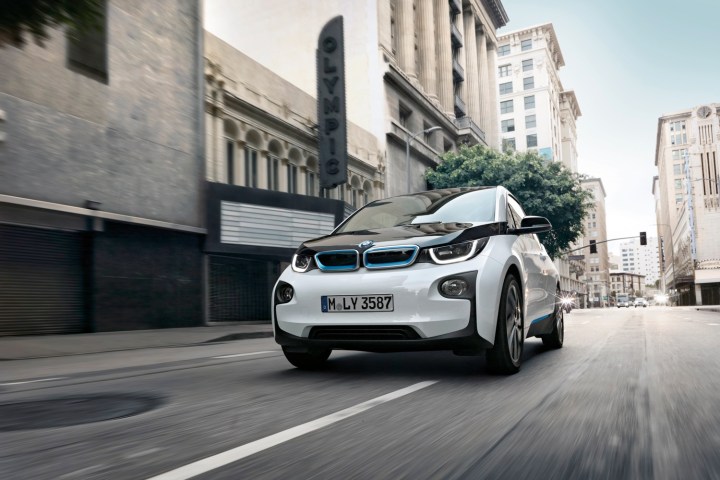
The discount program runs from July 1, 2016, until the end of June 2019. The government and carmakers will split the cost of the discount evenly up to a total of 1.2 billion euros ($1.3 billion). New all-electric cars will get a 4,000-euro ($4,433) discount and plug-in hybrid electric cars a 3,000-euro discount ($3,324). And it’s an actual discount on the price of the car, a more direct dollar-for-dollar (or euro for euro) benefit than a tax credit.
The discounts don’t apply to high-end Mercedes, BMWs, Audis, Porsches, and Teslas. The program is intended to get the widest range of electric cars into the most hands possible, so it’s limited to cars with a base price of 60,000 euros ($66,495) or lower. Certainly, there will be electric or plug-in hybrid models from each of those marques — maybe not Porsche? — under that price ceiling, but other brands will have a chance as well.
Among the program’s 1,791 applicants during July, 581 people bought BMWs — mostly the electric BMW i3. In addition, 444 bought Renaults, and 154 purchased Volkswagens. The Federal Office for Economic Affairs and Export Control (BAFA) informed AutoNews that 1,194 of the discount requests were for all-electric cars and 597 for plug-in hybrids.
The goal is to add 400,000 electric cars to Germany’s fleet. Sounds like a lot of cars, right? Actually, that number is less than one percent of the country’s total fleet of 45 million registered cars. Hopefully, price differentials for electric cars will come down and then the speed, cost per mile, simpler maintenance, and environmentally friendly aspects of electric cars will draw more buyers than those supported by the discount program
Before the program began, there were about 50,000 electric and plug-in hybrids in Germany. If you look at the first month’s generously rounded-up 2,000 applications, that means the number of e-cars on German roads due to the discount program is about to increase by almost 4 percent. Not bad for the first month in a 36-month program.
Editors' Recommendations
- Fake engine noises in electric cars need to die
- Don’t let the gimmicks fool you. The Ioniq 5 N is a serious track car
- Porsche’s most powerful production car is an EV
- Some on Apple’s failed car project reportedly had a cruel name for it
- Apple’s car project has apparently conked out




